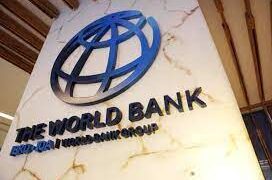By Lucy Adautin
The World Bank’s Nigeria Development Update report reveals that more than 129 million Nigerians are currently living in poverty.
Released recently in Abuja, the report links this rise to increasing headline inflation, which has exacerbated hunger among millions. Since 2018, the poverty rate has jumped from 40.1% to 56%.
The World Bank report read, “Combined with population growth, this means that some 129 million Nigerians are living in poverty. This stark increase partly reflects Nigeria’s beleaguered growth record. Real GDP per capita has not recovered to the level it was at prior to the oil price-induced recession in 2016.
“The COVID-19 pandemic compounded this drop in economic activity. Moreover, growth is failing to outpace inflation: large increases in prices across almost all goods have diminished purchasing power.”
It added, “Multiple shocks in a context of high economic insecurity have deepened and broadened poverty, with over 115 million Nigerians estimated to have been poor in 2023. Since 2018/19, an additional nearly 35 million people have fallen into poverty, so that more than half of Nigerians (51.1 per cent of the population in 2023) are now estimated to live in poverty.”
According to the report, there was an increase from 115 million in 2023 to 129 million in 2024, which means that 14 million Nigerians have become poorer this year.
The Washington-based bank attributed this surge to inflation, poor economic management, and external shocks.
“Several shocks have contributed to this major increase and changing profile of the poor: the COVID-19 recession, natural disasters such as flooding, growing insecurity, the high cost of the demonetization policy in Q1 2023, high inflation, and low economic growth.
“Previous domestic policy missteps compounded the effects of the shocks, particularly rising inflation, eroding the purchasing power, especially of urban households, pushing many into poverty. The government is ramping up the cash transfer programs to support economically insecure households to help weather the crisis”.
The report highlighted that while rural poverty persists, urban poverty has surged, with 31.3% of urban residents now impoverished, up from 18% in 2018. Employment alone does not guarantee escape from poverty, as many jobs lack sufficient productivity and pay. the report noted.
Meanwhile, the World Bank Country Director for Nigeria, Dr Ndiame Diop, urged the Federal Government to sustain its reforms, warning that reversing them would be disastrous.
Diop cautioned that “reversing these reforms would be detrimental and would spell doom for Nigeria.”
He acknowledged that the reforms are challenging yet vital for economic stability and that the World Bank is prepared to provide Nigeria with further loans and technical support for ongoing reforms. With inflation rising to 32.70% in September 2024, commodity prices have surged by 45.92% since May 2023.
The Inflation rate escalated for 13 consecutive months due to various factors, including the removal of fuel subsidy, which led to increased transportation and production costs, and the depreciation of the naira against major currencies.
As of late 2023, inflation surged, driven by higher prices for food, energy, and essential goods.
By January 2024, inflation rose to 29.90%, primarily due to food costs, fluctuating monthly before reaching 32.70% in September.



































